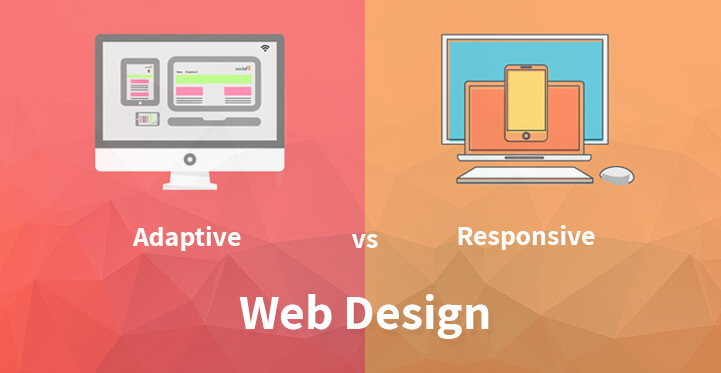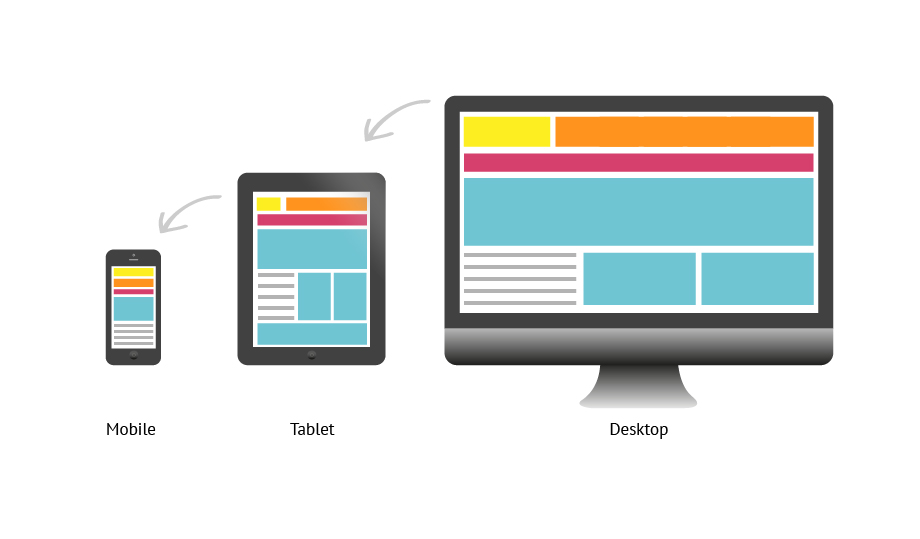It’s well known that designing with multiple screen sizes in mind is the key factor in the delivery of any website. Mobile devices can’t be ignored as more and more people rely on them to access the web.
With this, it becomes an interesting challenge to scale the site through adaptive or responsive web design but which one is more suitable for you.
In the present day and age, responsive website design isn’t a future any longer. It’s practically a standard you need to maintain in the event that you need to be taken seriously by clients and search engines alike.
In any case, there is another option in contrast to responsive design that is honestly less well known and not as adaptable than responsive, however progressively exact in specific situations known as adaptive web design.
1. So, what’s the difference between adaptive and responsive web design?
The best place to start and to get to know more about adaptive and responsive web design as after all, these are the two methods that are used for implementing a website throughout screen design.
There is a confusion between both the designs. The boundaries may be blur to those who don’t have any experience of either style of design, but there are clear differences when you look more closely.
Adaptive web design utilizes particular formats for different screen sizes, the design to a great extent relies upon the screen size being utilized so keeping every one of these sizes a layout would need to be designed for it.
Responsive web design works on creating the single version of the web page, which responds to the screen size and the resolution of the client device and rearranges the components of the design so that they fit comfortably to the target device screen size.
Adaptive has a few points of interest of its own, but responsive is the best approach much of the time. Below give are the important point of the benefits and disadvantages of each.
2. Responsive has more support and adoption
The vast majority of the sites set up these days are based on frameworks and content management system (CMS). This implies they previously come with themes, plugins, and different optimizations that ensure a site will be a responsive directly of out the box, with no change required.
Along these lines, a client never needs to stress over how a site looks on a cell phone. It just plugs and plays.
Then again, adaptive website design is substantially more work concentrated and technical in nature, since it requires the different versions of the site to be worked starting with no outside help and built from the scratch.
3. Responsive web design is more flexible
One of the biggest disadvantages of using adaptive web design is the huge amount of screen resolutions that are utilized over all the devices.
If one wants to make an adaptive website then there is a vast amount of resolutions one has to deign to. One has to do a lot of changes like to rearrange the elements and resize the font, buttons, separator, website colour, etc.
One also makes use of the biggest category other which has many resolutions. Those are the ones with so little piece of the overall industry, they probably won’t pass 1%.
Not only this, but your adaptive website design also means that you will have to fix all the bugs and all the layout separately. On the other hand, designing a responsive web design gives an instant solution that cleans away all the potential workload all at once.
4. Adaptive is great if you want to target certain clients
Up until now, it would appear that responsive web design is winning, yet there’s a no-win situation.Since responsive is a design that one size fits all solution, it’s conceivable that it won’t good a sufficient good result for a few resolutions at the same time, regardless of what amount tinkering is done.
All things considered, the best solutionsare to make anadaptive web design, that explicitly focuses on a specific goal and overrules the responsive settings.
5. Adaptive design is better choice for eCommerce websites
Blogs, sites, magazines don’t generally need to stress excessively over responsive versus adaptive, particularly in the event that they are little and simply beginning.
There are increasingly important things to put theresources in. Be that as it may, an eCommerce site may find that the “one size fits all” responsive way to deal with be an awful approach for deals.
This is because of the sites that actually selling products or item rely heavily on conversion optimization.
Responsive plans aren’t appropriate for this, since what works at Android, probably won’t take work at an iPhone and the other vice versa. The equivalent applies toPCsversus Macs.
In such a circumstance, the best methodology that ensures the most cash is to get as granular as would be and change the site to take into account specific clients.
A lot of times, this implies making a particular format for Mac clients. Another format for tablet clients, etc.
True, this is a lot of detailed work. But as in this case, an adaptive layout will satisfy this investment through the increases conversion rates and sales from the targeted device.
Conclusion:
Responsive web design will be more popular as it takes a lot more effort to implement, but in the long run, it will probably need less maintenance and it will respond to the new screen sizes as they are released, giving your site a longer life.
It is also more useful when you come to designing for screen sizes you do not have access to.
As an end, it’s safe to state that responsive and adaptive aren’t better than each other. They’re simply unique tools in a designer’s toolbox.
While the facts demonstrate that responsiveness is the tool one will utilize all the more as often as possible, it’s extraordinary to realize you have all that you requirement for every one of the situations that can get in your way.


